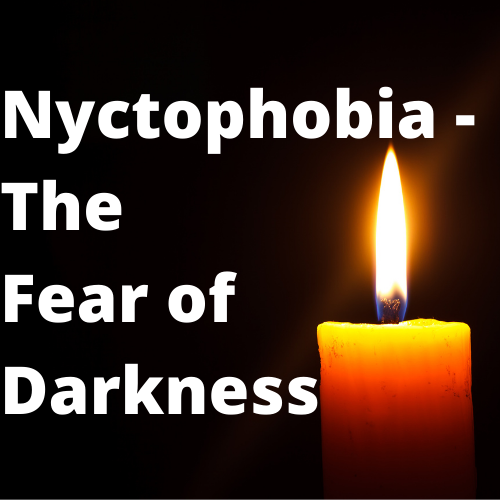Nyctophobia is a mental health disorder, or anxiety disorder, that is the fear of darkness. This goes beyond children who are afraid of the dark. This phobia is extreme distress and fear of the darkness and night. These can cause feelings of anxiety and depression, and are so excessive or irrational, they impact one's day-to-day.
Overview
Being afraid of the dark stems from childhood and having a general fear of the dark. It's rooted in the fact that we cannot see in the dark, and the lack of visual stimuli and our ability to see is what provokes the fear. While a little fear is normal, when this fear starts impacting daily life, like the ability to go to sleep, that's when it's time to see a doctor.
Symptoms
The symptoms of nyctophobia are very similar to any other phobia. Because phobias are an anxiety disorder, these individuals experience extreme fear that causes distress when they're in the dark. Symptoms may interfere with daily activities and school or work performance. They could even lead to health issues.
Physical symptoms include the activation of the fight or flight response, and include trouble breathing, racing heart, chest tightness, shaking, lightheadedness, upset stomach, or sweating. Emotional symptoms include feeling overwhelmed by anxiety or panic, an intense need to escape the situation, and a detachment from self or feeling unreal.
Diagnosis
Fear of the dark is common in childhood, but when it leads to an inability to sleep or continues into adulthood, then it may be time to consider nyctophobia as a diagnosis. If you or your child has trouble sleeping, is feeling particularly anxious or distressed, or has another reason, then it may be most beneficial to speak with a professional.
The physician will ask many questions about your symptoms and a history of psychiatric and social history.
Treatment
Some phobias don't require treatment. However, because this one makes it so difficult to get enough sleep, which can lead to other disorders like insomnia, it's important to consider seeking treatment.
Treatment options may include environmental changes like leaving a small light on in the room; however, it doesn't address the issue. Exposure therapy and cognitive therapy are two therapies that have a goal of addressing the root cause of anxiety. Relaxation treatments like deep breathing and exercise can also help people manage the stress and physical symptoms related to phobias.
If you or someone you know is struggling with getting a good night's rest, please click the orange button below to take a free online sleep test and talk with one of our sleep health professionals.
[Sources]:
https://www.healthline.com/health/nyctophobia#outlook


